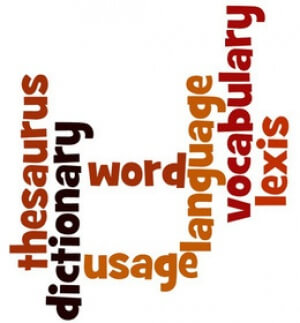
Here’s a quick quiz to start with:
Does venial mean excusable or immoral?
Is prodigal a synonym for extravagant or wandering?
If people are equable, are they even-tempered or fair-minded?
Does refulgent mean swelling or gleaming?
Is meretricious a synonym for exemplary or tawdry?
What makes these five words interesting is what they have in common–in each case, one of the wrong answers was far more popular than the actual correct answer. How did you do? If you’re like most people, you didn’t do very well–these are challenging words that most people probably don’t see very often. These items were among ones administered to a sample of high-vocabulary clients as part of our data collection when constructing the upper-level Wordbooks.
Venial means excusable, prodigal is extravagant, equable is even-tempered, refulgent is gleaming, and meretricious is tawdry. The other choices in the quiz are the ones that most people chose, and it’s easy to see why those choices were attractive.
In some cases, the word is commonly used in a context which might suggest the wrong answer. Most people are familiar with the concept of the prodigal son. With no understanding of the word prodigal, wandering is probably as good a choice as extravagant, since the prodigal son wandered far from home and spent all his money.
Words like these five are important not simply because they are unknown to many people, but because, as the concentration on one wrong answer shows, they are actively misunderstood. In other cases, the spelling or sound of the word suggests the wrong answer. Meretricious may suggest merit and therefore exemplary; refulgent sounds like bulging, which leads to swelling. The ‘equa’ part of equable in fact means equal, but fair-minded is a wrong guess for the word’s meaning based on this clue.
Quiz items like these seem unfair in a way because they are designed to trip up people who aren’t absolutely sure of the word’s meaning.
Without the choice of wandering, many more people might get the word prodigal correct. But this sort of confusion or misunderstanding is precisely why we emphasize not only having a broad vocabulary but also a precise one. When our vocabulary tests were constructed (by the original author of this article), we tried to think of ways in which the test word might be understood, and we include wrong answers that will attract people who have these misunderstandings. There are many levels of knowing a word; we encourage people to know words as completely as possible.
Words like these five are important not simply because they are unknown to many people, but because, as the concentration on one wrong answer shows, they are actively misunderstood. That is, people hear, read, and use them with a false sense of familiarity, which can be more of a problem than if they had not recognized the word at all.
If a word is totally unfamiliar to you, you aren’t likely to feel much confidence in your understanding of the context in which it appears. If you think you know the word, however, you may end up with some strange misconceptions. When a critic calls a play meretricious, our data indicate that most readers will think the critic is complimenting the playwright. On the other hand, if the critic mentions some venial offenses in an otherwise fine production, many of these same readers might end up with a very odd idea of what the play is about.
How can you know if you misunderstand a word’s meaning? The only way is to ask yourself, “Do I really know this word’s exact meaning?” A sentence can make sense to you even though you don’t know the correct meaning of a word in it. The sense you make of the sentence, however, may not be the sense the author had in mind. So if you are not absolutely sure of a word’s meaning, look it up. Few people enjoy taking the time as they’re reading to look up something they don’t know, fewer still would be likely to stop and look up something they think they know. But you are most likely to make progress in building your vocabulary if you spend a little time checking your understanding of familiar words as well as the ones that are strangers to you. Whether you use a traditional or online dictionary or an app, to really know a word you have to look it up.
















